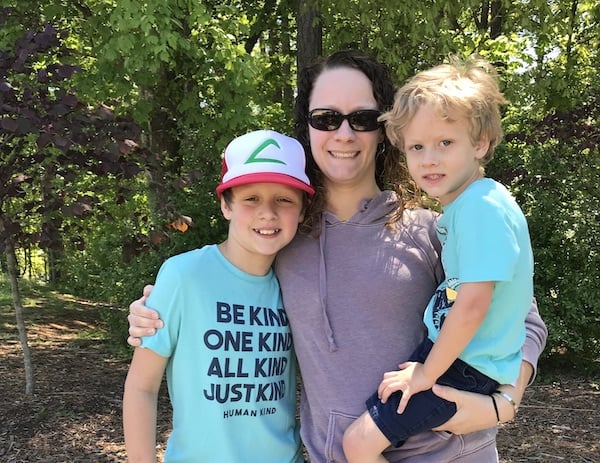Tooth decay is the number one childhood chronic disease in the US. While some may think of cavities as a rite of passage (especially around Halloween candy season), the truth is that this is an entirely preventable condition. If left untreated, cavities can cause serious health complications that mean unnecessary pain and suffering, missed school, and costly treatments. It’s not just sticky Halloween candy harming kids’ smiles though – outdated state regulations are putting barriers between kids and the oral health care they need.

Moms like Liz know exactly how lack of access to care can contribute to poor childhood oral health and costly, invasive treatments. When her family lost dental insurance, the cost of care was more than they could afford. After six years of working to regain insurance coverage, their family was finally able to get to the dentist last December. By the time he was able to see a dentist, Liz’s son Jackson had treatment needs that will cost the family $2,000 in out-of-pocket costs, and will require general anesthesia to complete.
Unfortunately, this isn’t an unusual experience for North Carolina families. Insurance is scarce and costly. What’s more, almost 80% of the state is considered a Dental Health Professional Shortage Area – meaning that even if you have insurance, there probably is no dentist who can see you.
While Sheila Arias served as a Health and Nutrition Coordinator in a Durham Head Start Program, she witnessed this lack of access first hand. Large numbers of children in the program suffered with unmet oral health needs, including one preschooler who needed multiple surgeries due to her infected gums. This is a personal issue for Sheila, as well. Her own untreated oral health problems resulted in such significant (and expensive) treatment that she is still making monthly payments 8 years later.
School-based solutions
Fortunately, there are solutions. Some areas of the state have been able to meet more children’s needs by providing care in schools. These services are primarily focused on preventive care such as fluoride varnish and sealants, as well as oral health education. These programs are typically available to children at high risk of poor oral health, and who are either covered through Medicaid, or have no dental insurance at all. The providers come to them, allowing them to get the care they need, without missing school.
One of the barriers to expanding access to this type of highly-effective programming is an outdated state regulation (sometimes called the “Prior Exam Rule”). This rule prohibits dental hygienists from providing any preventive care unless the patient has seen a dentist first. This standard can be difficult and costly to meet, when nearly 80% of the state has a serious shortage of dentists. Other states have eliminated similar regulations, and found that the prior exam is both unnecessary, and presents a barrier to children getting the care they need.
Fortunately, the NC Dental Board of Examiners is considering a proposed amendment that will begin to address this problem. The change would waive the prior exam requirement for public health hygienists who are supervised by dentists in Dental Access Shortage Areas. Another component of the rule change would allow dentists to supervise more than two hygienists, thereby increasing the capacity of local school-based programs.
Speak Up!
The NC Dental Board needs to hear from you! Please use our simple form to contact the Dental Board and let them know you support changes to the Prior Exam Rule that would bring life-changing care to thousands of NC children.
These two changes would allow more children to receive preventive care, fighting untreated tooth decay, and ensuring that kids like Jackson will no longer need to suffer without access to care.
Sarah Vidrine is NC Child’s Oral Health Policy Analyst
Support NC Child’s work to ensure health and wellness for all NC’s children. Click here to make a donation today.

